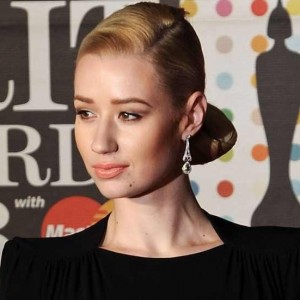What we talk about when we talk about Iggy Azalea
Iggy Azalea is not your typical rapper, but I really mean it this time. No, she’s not a media studies student at an American liberal arts college. She’s a 23-year-old Australian blonde bombshell, and she’s making a serious push to become a legitimate voice in the hip-hop world. In fact, she’s arguably the most successful white female rapper of all time.
Azalea moved to the states at age 16. She drifted from Miami to Houston to Atlanta before finally settling in Los Angeles. Along the way, she tried to gain a foothold as a rapper, but struggled to be taken seriously.
Her luck began to change in 2011, after she released her first official music video, “Pu$$y,” on YouTube. After releasing her first mixtape, “Ignorant Art,” she began working with Atlanta-based rapper T.I. T.I.’s early presence in her career has certainly influenced her musical style, which strongly resembles Southern rap, or “Dirty South” style.
From there, her career exploded. In 2012, following the release of her EP, “Glory,” she became the first female non-American rapper to be featured on XXL Magazine’s Top 10 Freshman Class of rappers of the year. Her debut studio album, “The New Classic,” is slated for release on April 14. The album is expected to feature production from Diplo, Steve Aoki and Flosstradamus, and guest work from Cee-Lo Green, Katy Perry, T.I. and Rita Ora. It seems the music industry has welcomed Azalea with open arms.
But where does Azalea stand in the history of rap music? She simultaneously represents a new level of inclusiveness in the genre, as well as an increasing acceptance of cultural appropriation and superficiality, particularly in light of rap’s collision with pop.
Azalea has yet to say anything particularly interesting in any of her raps. She talks a lot about her sex appeal (she happens to be dating Lakers star and USC alumnus Nick Young), and frequently channels other Dirty South rappers’ obsessions with liquor and money. She also consciously strives to sound as stereotypically “ebonic” as possible. In her latest single, “Fancy,” she spits, “Still stuntin’ how you love that? / Got the whole world askin’ how I does that.”
But it’s so hard to stay frustrated with Azalea. In interviews, she comes off as a humble, well-spoken girl next door, albeit with an Australian accent. She also seems to have a lot of respect for hip-hop as an art form. She talks about being inspired by the likes of Tupac and Lil’ Kim, and seems to take her own artistic development seriously. And her music is a lot of fun, even though it’s lyrically mind-numbing. But then again, most pop-rap is.
Perhaps it’s healthy for someone like Azalea to be so remarkably unselfconscious. She provides a stark contrast to Macklemore, who is painfully aware of his role in the music industry’s legacy of cultural appropriation. But her humility and deference ensure that she’ll never be like Riff Raff, another white rapper, whose apparent ignorance makes him impossible to take seriously.
Azalea is indicative of the complexity of contemporary culture. Is she a courageous boundary breaker or an appropriating sex symbol? If the popularity of “Fancy” is any indicator of her future success, more voices will surely weigh in on Iggy in the coming months.
Ben Schneider is a freshman majoring in international relations and English. His blog, “The Way We Live Now,” runs Tuesdays.



I respect Iggy, she’s great. Sure her raps could be considered “fluffy” but she does rap about her experience and it really shows in her live performances. You can tell she puts her heart and soul into her music. Interested to see how she evolves and matures. Miley should take notes from Iggy, this is how you do controversial sexuality tastefully.
I really thought this article would be ragging on Iggy, but its quite profound insight. But she actually does have serious raps, you have to be a true fan to actually know all the work she’s put in.